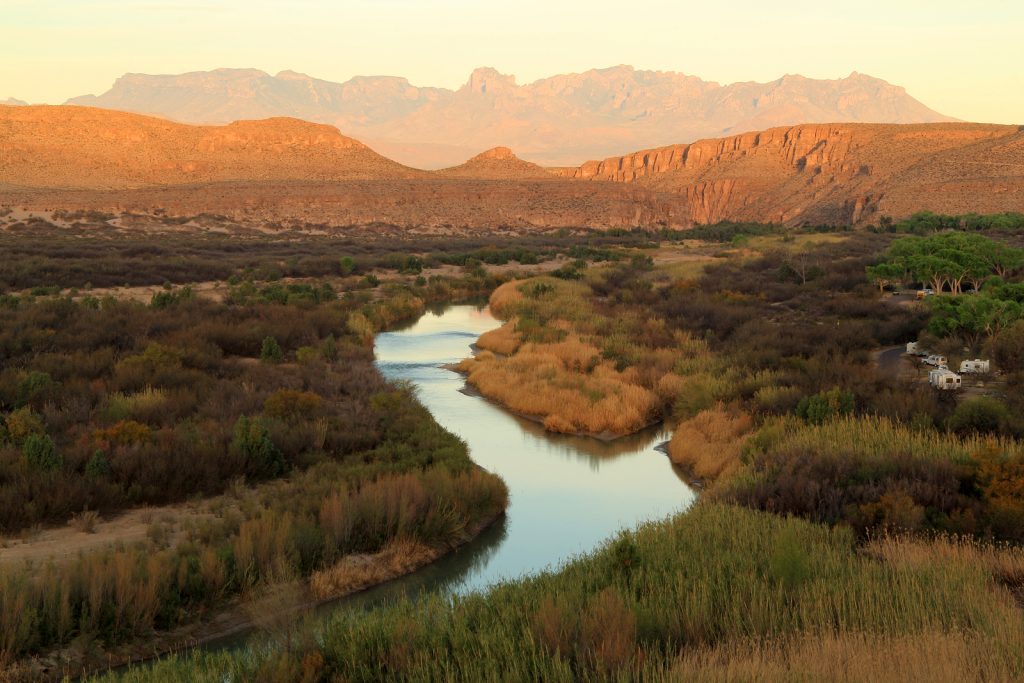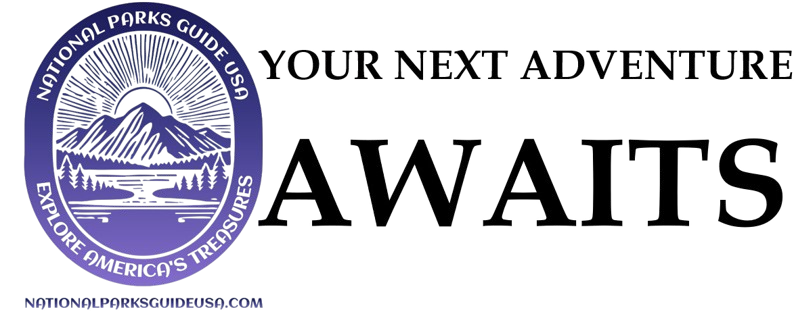Big Bend National Park
Big Bend National Park Guide
 Tucked into the remote southwestern corner of Texas, Big Bend National Park is a dramatic blend of desert, mountains, and river landscapes. Known for its rugged beauty and stargazing skies, it’s a bucket-list destination for solitude seekers and outdoor adventurers.
Tucked into the remote southwestern corner of Texas, Big Bend National Park is a dramatic blend of desert, mountains, and river landscapes. Known for its rugged beauty and stargazing skies, it’s a bucket-list destination for solitude seekers and outdoor adventurers.Park Overview
Spanning over 801,000 acres, Big Bend National Park offers one of the most diverse natural experiences in the country. Encompassing the Chihuahuan Desert, the Chisos Mountains, and the winding Rio Grande, this park is home to more than 1,200 plant species, hundreds of bird species, and ancient geological features. Its remote location makes it one of the least visited but most treasured national parks in the United States.
- Location: Big Bend Region, Texas
- Established: June 12, 1944
- Size: 801,163 acres
- Annual Visitors: Approximately 581,000
- Park Type: Desert, Mountain, Riverine
Top Things to Do
- Hike the Lost Mine Trail for sweeping mountain views
- Canoe or kayak along the Rio Grande
- Explore the Santa Elena Canyon
- Drive the scenic Ross Maxwell Scenic Drive
- Stargaze under one of the darkest skies in North America
Best Time to Visit
Spring and fall offer the best weather for hiking and exploring Big Bend. Summers are extremely hot, while winters can be surprisingly chilly in higher elevations.
- Spring: Desert blooms, bird migrations, moderate temperatures
- Summer: Intense heat, best for river activities
- Fall: Cooler weather, fewer crowds, golden foliage
- Winter: Crisp air, quiet trails, snow-dusted mountain peaks
Visitor Tips
- Entrance Fee: $30 per vehicle (valid for 7 days)
- Hours: Open 24/7, year-round
- Permits/Reservations: Required for backcountry camping and river trips
- Accessibility: Visitor centers are accessible; some paved trails and overlooks
- Pet Policy: Pets allowed in developed areas but not on trails or in backcountry
- Safety Tips: Bring plenty of water, avoid hiking midday in summer, be alert for wildlife and flash flooding
History and Cultural Significance
Big Bend’s name comes from the large bend in the Rio Grande river that defines the park’s southern boundary. Indigenous peoples, including the Chisos, Jumano, and Apache, have inhabited the area for thousands of years. In the early 20th century, ranchers and miners shaped the modern history of the region. Today, the park preserves ancient fossils, petroglyphs, and diverse ecosystems within its boundaries.
How to Get There
- Nearest City: Terlingua, TX (20 miles away)
- Nearest Airport: Midland International Air & Space Port (MAF)
- Driving Directions: From Midland, take I-20 to US-385 S, then TX-118 S into the park
- Public Transit/Shuttle: No public transportation; rental car required
- Google Map
Nearby Attractions
- Big Bend Ranch State Park
- Terlingua Ghost Town
- Rio Grande Village
- Fort Davis National Historic Site
- Marfa, Texas
Where to Stay
- Campgrounds: Rio Grande Village, Chisos Basin, Cottonwood Campground
- Lodging: Chisos Mountains Lodge (in-park)
- Nearby Hotels or Rentals: Accommodations in Terlingua, Marathon, and Alpine
Frequently Asked Questions
Q: Is Big Bend worth visiting?
A: Absolutely! It’s a remote paradise of solitude, natural beauty, and unmatched night skies.
Q: How many days should you spend at Big Bend?
A: At least 3–4 days to fully explore hiking trails, scenic drives, and river activities.
Q: Are pets allowed?
A: Yes, but only in developed areas like roads, campgrounds, and parking lots.
Q: Is the Big Bend Park open year-round?
A: Yes, but some services and roads may be limited in summer due to extreme heat.
Map Section
Include a custom map showing main entrances, trails like South Rim and Lost Mine, visitor centers, and notable landmarks such as Santa Elena Canyon.
Photo Gallery
- Sunset over the Chisos Mountains
- Kayaking through Santa Elena Canyon
- Cactus blooms in spring
- Milky Way above the desert landscape
- Rio Grande view from the Hot Springs Trail
Visitor Experiences
“The silence out here is surreal—like being on another planet.” – Olivia H.
“Watching the stars in Big Bend was the most magical night of my life.” – Daniel M.
Plan Your Visit – CTA
- Get Directions
- Download Park Itinerary
- Join Newsletter
